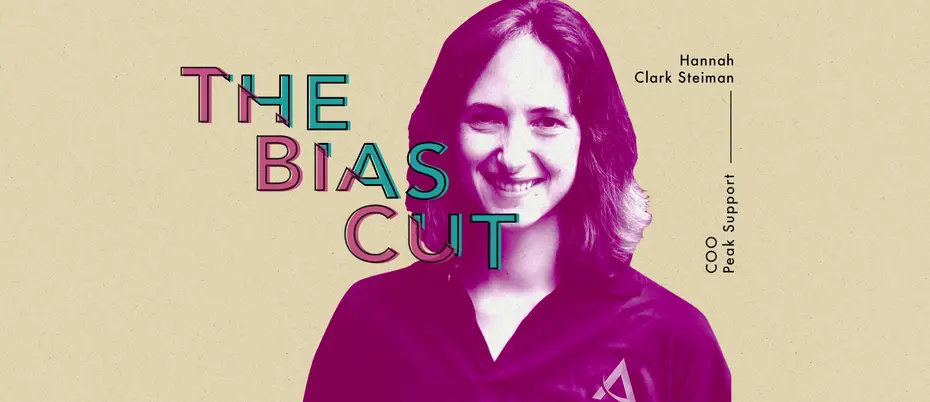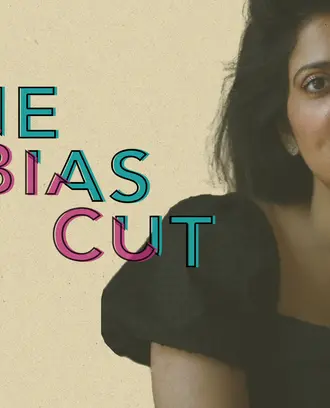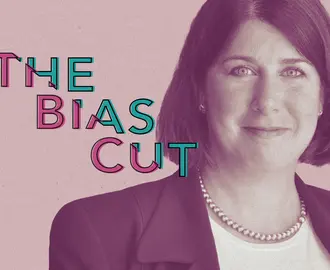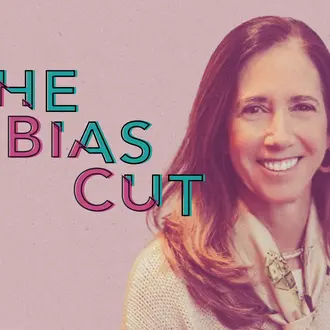The Bias Cut
Why this COO starts small when building a diverse team
“It’s never a coincidence; if the senior leadership is dominated by white, cisgender men, that’s happening for a reason.”
A 2019 women’s leadership study from LeanIn.org and McKinsey & Co. found that American women held less than 40% of corporate management positions, and women continue to fight underrepresentation when it comes to board positions and CEO roles. They also face gender bias, harassment, and opposition to their management styles.
Here’s how one Sloan alumna has pushed back on those statistics and used what she’s learned along the way to help those behind her.
Hannah Clark Steiman, MBA ’13, COO Peak Support
As a woman, in what ways is your professional life different from what you imagined it would be like when you started your career?
Essentially, I run a global, virtual call center. I never thought, “I want to run a call center when I grow up.” But I also never imagined I could work with such an incredible group of people, in a company with such a positive culture. That’s what it’s really all about — not finding the right industry, but finding the right company and the right people.
Can you give an example of a time you’ve experienced or witnessed gender bias? How did it affect you professionally? What impact did it have on your job?
I was once in a meeting where a male boss made mocking comments to me and to the one other woman in the room. That stands out the most, because of the emotional reaction I had to it.
But really, the impact comes from the lack of women in leadership positions. It just sends the message “Women can’t succeed here.” And it’s never a coincidence; if the senior leadership is dominated by white, cisgender men, that’s happening for a reason.
Certain industries are as male-dominated as ever. Where do you see progress in your own professional experience and how can we scale that throughout your industry?
I think leaders need to commit to it when their organizations are small, as in when they have fewer than ten people. If you have 20 people in your U.S. office and they’re all white, you’re behind. It’s not too late to start, but you already face an uphill battle.
We have six people on our U.S. team, and we’re working now on defining our ideals and policies around diversity, equity, and inclusion.
How do you support women coming up behind you?
We’re working on defining specific practices for supporting DEI in all areas. A friend of mine is a chief diversity officer and gave me some really valuable advice, which was: Don’t define a separate diversity policy. Make sure diversity and inclusion are reflected in your mission, vision, and core values, and go from there.
That’s what we’re working on now. But I think one key tactic in hiring is not to overly define the requirements for the job. Do you really need someone with 10 years of experience doing X?
Who was an ally or mentor for you as you’ve navigated your career? What made that person stand out, and how specifically did they help you get to the next level of your professional development?
One of my mentors is Doug Rauch, the former president of Trader Joe’s. He always shares the Peter Drucker quote, “Culture eats strategy for breakfast,” which I think about a lot. But the most impactful advice he gave me was when I was thinking about leaving consulting. I was having a hard time getting startups to take me seriously. He said, “It’s only going to get harder. The longer you’re in consulting, the more people will suspect that you can’t actually do anything.” I think I quit a couple weeks after that to join Peak Support.
What is the most difficult lesson you’ve learned in your professional life? In what unexpected ways did you grow from it?
I took a job at a new organization and thought I knew better than a lot of the people there. I had a lot of criticisms of how the organization operated, and I came across as an a**hole. After about two months in, I suddenly realized I’d made a mistake. I started listening to people instead of trying to tell them how to do things. But it was too late. Two years later, I had changed my approach but I couldn’t shed the reputation I’d created.




